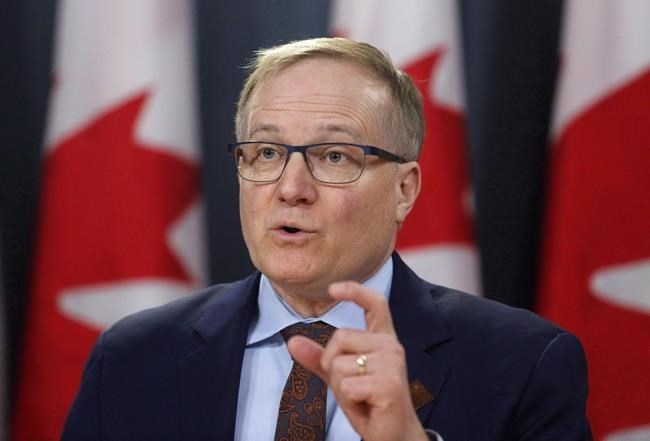In his daily briefing on April 9, Prime Minister Justin Trudeau said: “Our country will come roaring back.”
I understand why he might want to reassure people that everything would be fine, that this is just a temporary, if large, disruption to business-as-usual. But it’s much more than that.
The COVID-19 pandemic has been likened to a combination of the Great Depression and a world war, giving a rude shock to our social and economic systems.
But it has also laid bare some of the price we and others around the world pay for our way of life. It has given us an opportunity to stop and think — one we should seize.
An April 3 editorial in the Financial Times noted: “The leaders who won the [Second World War] did not wait for victory to plan for what would follow … That same kind of foresight is needed today. Beyond the public health war, true leaders will mobilise now to win the peace.” What might that post-COVID “peace” look like?
Clearly, it should not be “back to normal” if “normal is the pathology,” as Bill Rees, professor emeritus of human ecology and ecological economics at UBC, wrote in The Tyee on April 6.
By this he meant that our present way of life, and the neoliberal economy that supports it, is in many ways pathological. It does a great deal of harm to a great many people and to the Earth, our life-support system.
So rather than adopting an approach I call stupid resilience — “roaring back” to a dysfunctional economic system and way of life — we need smart resilience, “roaring forward” to something very different.
We need to transition to a system that repairs the social and ecological harm the current system creates.
The same editorial in the Financial Times suggests ways to repair the social harm that some might find surprising, coming from a source that is hardly a bastion of radical anti-establishment thought. The editorial board wrote:
“Radical reforms — reversing the prevailing policy direction of the last four decades — will need to be put on the table. Governments will have to accept a more active role in the economy.
“They must see public services as investments rather than liabilities, and look for ways to make labour markets less insecure. Redistribution will again be on the agenda; the privileges of the elderly and wealthy in question. Policies until recently considered eccentric, such as basic income and wealth taxes, will have to be in the mix.”
In calling for radical reforms that reverse the policy directions of the past 40 years, they are in effect saying: “Toss neoliberalism on the scrap heap of history.” They suggest instead new directions that are actually not all that radical, but in many respects a return to policies from the mid-20th century.
This would include a larger and more activist government, a fairer tax system, an end to part-time “McJobs” and much enhanced economic and social security.
Undoing ecological harm was not addressed in their approach, but it has to be the second arm of this radical reform. Fortunately, we have a model in the concept of the Green New Deal.
Peter Julian, the NDP MP for New Westminster-Burnaby, tabled a motion in the House of Commons in December calling for support of a Green New Deal for Canada.
It envisages investing in Canada’s infrastructure and industry to sustainably meet the challenges of the 21st century, including achieving net-zero greenhouse gas emissions. This would create millions of good, high-wage jobs while managing a fair and just transition for all communities and workers, ensuring prosperity and economic security for all Canadians.
We can’t afford a short-sighted, knee-jerk response to the post-COVID world that will have us roaring back to the same pathological society and economy that causes such widespread ecological and social harm.
We need a new, smart way forward, using the substantial body of work that has been done in the field of ecological economics to develop alternative economic and social models.
Prime Minister Justin Trudeau and other world leaders must seize this opportunity and show the true, far-sighted leadership the Financial Times and the Green New Deal calls for.



